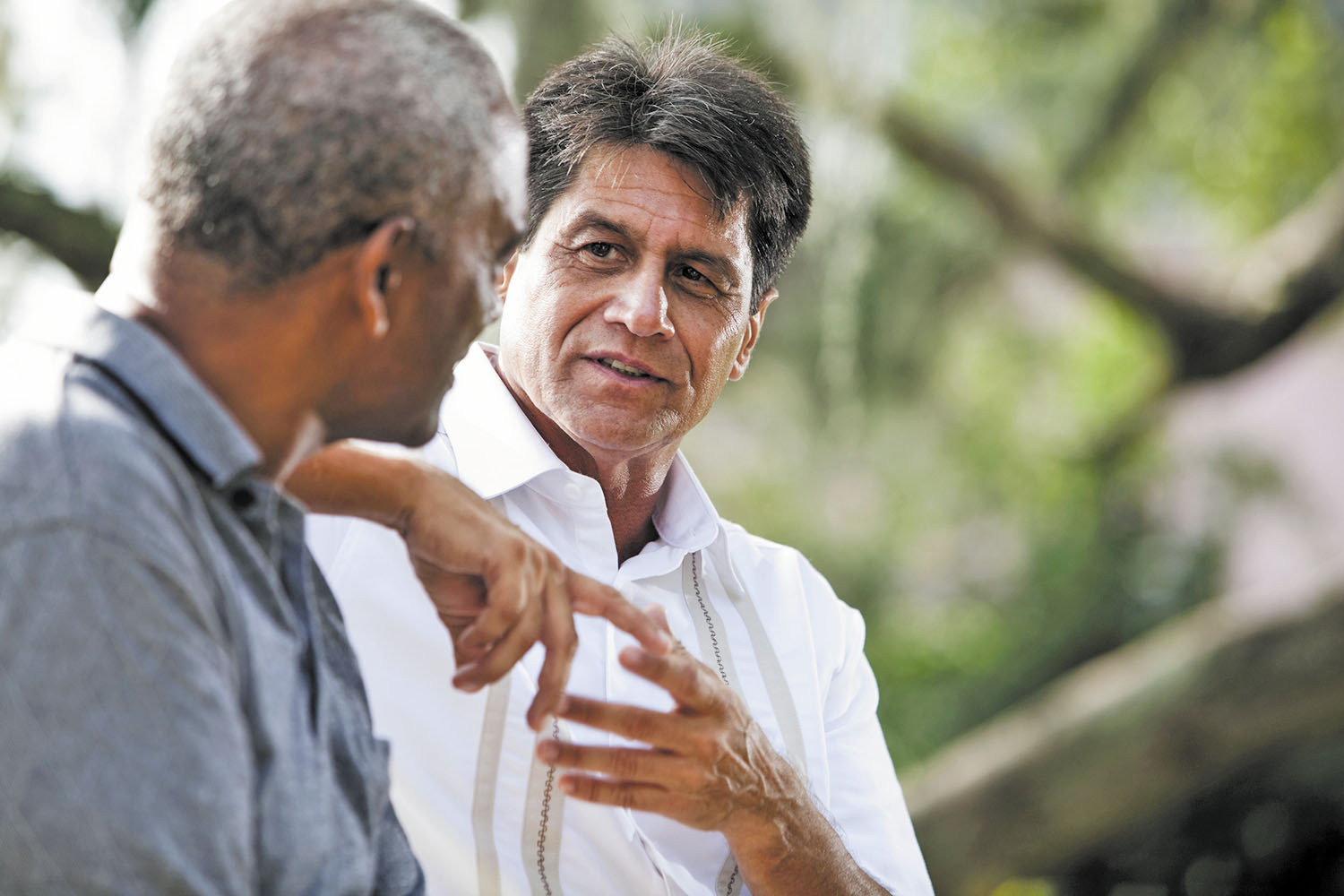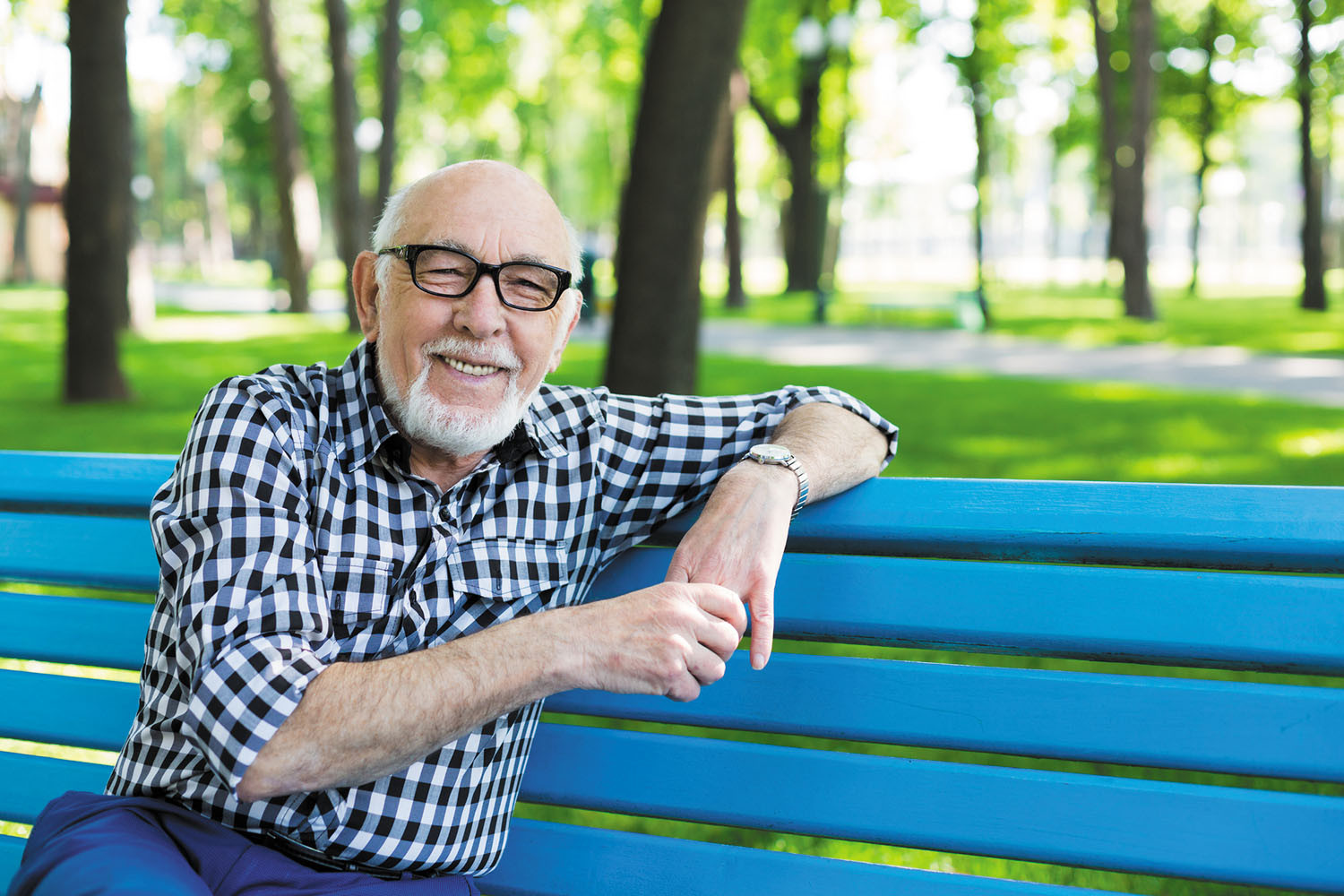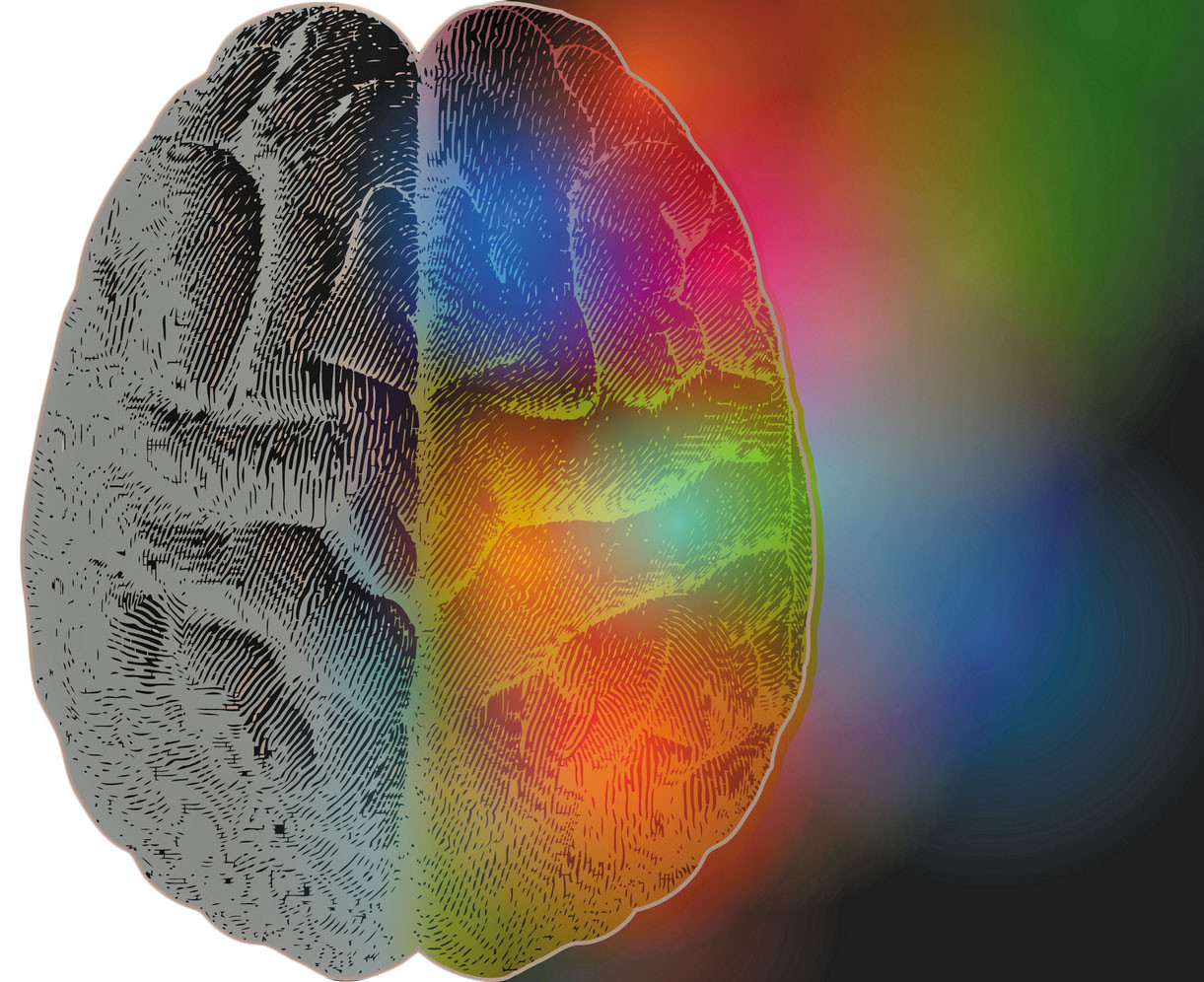
New thinking about plaque in arteries that feed the brain

Want to prevent shifting teeth? Maybe you need retainers

What you need to know about the new dietary guidelines

Food that’s healthier for people and planet can be cheaper, too

New evidence that polyphenol-rich foods help the heart

8 simple ways to reduce ultra-processed foods in your diet

How to curb your stress eating

How to spot Parkinson’s disease symptoms

Heart failure symptoms in women: How they’re different

GERD diet: Foods to avoid to reduce acid reflux
Mind & Mood Archive
Articles
Get the facts about memory loss
Many conditions can affect your memory and thinking.
Dementia, Alzheimer's disease, mild cognitive impairment. These terms are often mentioned together to describe age-related memory loss. While they are linked in some ways, they are not necessarily the same, and they often affect people differently.
"Even though memory loss is more common as you age, it is not part of normal aging," says Dr. Gad Marshall, associate medical director of the Center for Alzheimer Research and Treatment at Harvard-affiliated Brigham and Women's Hospital. "Either sudden or gradual persistent changes in memory loss and mental lapses can be signs of more serious conditions."
What to do when reading gets harder
Treating underlying conditions and using helpful strategies may be all it takes to get you back on track.
Reading for pleasure is one of life's great gifts. It's an escape to another world or a path to increased knowledge. Plus, reading about a subject that's new to you challenges the brain, which may help create new brain cell connections. But many aspects of health can affect our ability to read in older age.
Physical changes
Chronic disease and age-related changes can have a big effect on your ability to read. Consider these factors:
What can you do to avoid Alzheimer’s disease?
How a healthy lifestyle can make a difference in Alzheimer’s prevention.
Alzheimer's disease, the most common form of dementia, is characterized by the accumulation of two types of protein in the brain: tangles (tau) and plaques (amyloid-beta). Eventually, Alzheimer's kills brain cells and takes people's lives.
Alzheimer’s causes
What causes Alzheimer's? We still aren't sure. "For 1% of all cases, there are three genes that determine definitively whether or not you will have Alzheimer's, and all three relate to amyloid-beta production, which in these cases is likely the cause of Alzheimer's," says Dr. Gad Marshall, associate medical director of clinical trials at the Center for Alzheimer Research and Treatment at Harvard-affiliated Brigham and Women's Hospital. "For the other 99%, amyloid and tau are closely associated with Alzheimer's, but many things may contribute to the development of symptoms, such as inflammation in the brain, vascular risk factors, and lifestyle."
Pill-free treatment for urinary incontinence
News briefs
Here's some relief for people with urinary incontinence who don't want to take pills to treat the problem: behavioral therapy (bladder training) works better for urinary incontinence than medication, according to a study published online March 18, 2019, by Annals of Internal Medicine. Researchers reviewed 84 randomized trials of women (average age 55). The studies evaluated 14 categories of incontinence treatments, including pill-free therapy and medications such as anticholinergic drugs — for example, oxybutynin (Ditropan). Most of the strategies (except taking hormones or getting injections of a bulking agent near the urethra) were more effective than doing nothing to treat incontinence. But for both stress incontinence (the kind that makes you leak when you laugh) and urge incontinence (the kind that makes you rush to the bathroom), behavioral therapy was the most effective treatment, beating medications and neuromodulation (electrical stimulation of the nerves that control the bladder). The catch: it takes practice to make behavioral therapy effective. But it may be worth the effort, since medications for incontinence often have side effects.
Rehiring your business mind
The three Ms — mindfulness, meditation, and mantras — sharpen work-related soft skills and improve your memory.
Think back to how your mind operated during your work career. Your mental skills were divided into two types: hard and soft. Hard skills related to the technical knowledge you needed to perform a specific job. Soft skills consisted of everyday thinking, like making decisions, being a good listener, and having a positive attitude.
You might not need hard skills as much now, but maintaining soft skills will always be valuable.
A 20-minute nature break relieves stress
In the journals
Spending just 20 minutes connecting with nature can help lower stress hormone levels, according to a study in the April 4, 2019, Frontiers in Psychology. Previous research has shown that interacting with nature reduces stress, but it is not clear how long and how often the engagement needs to be, or even what kind of nature experience is best.
Here, researchers asked 36 people to spend 10 minutes or longer, three days a week for eight weeks, in an outdoor place where they could interact with nature. The settings varied from yards to public parks to green areas near their place of work. They also either walked or sat during their nature time.
Regular exercise adds up to big memory boosts
In the journals
It's well known that regular exercise helps maintain brain function. New research finds that brain activity increases and memory improves immediately after even a short, single bout of exercise.
And the more exertion you put into that exercise, the greater the improvements. In addition, whatever level of exertion you're able to achieve on that single exercise predicts how much brain boost you'll get if you continue to exercise at the same intensity over a longer term. These findings were presented at the Cognitive Neuroscience Society's annual meeting on March 24, 2019. Researchers recruited 34 people, average age 67, and gave each a baseline functional MRI (fMRI) scan, which reflects brain activity, and a memory test in which they had to remember faces. The researchers then asked the participants to exercise for 20 minutes on a stationary bike that could measure their physical effort.
An underused option for severe depression
A new study supports the use of noninvasive brain stimulation in people with severe depression who haven't responded to medication.
If medication isn't helping to ease severe depression, nonsurgical brain stimulation may be an effective alternative to consider, according to a study published online March 27 by The BMJ. Specifically, the study found that evidence seems to back the use of repetitive transcranial magnetic stimulation (rTMS) and electroconvulsive therapy (ECT) over other, newer brain stimulation therapies.
"Many psychiatrists are unaware of these techniques, or at least don't think to recommend them for their patients," says Dr. Daniel Press, associate professor of neurology at Harvard Medical School and the clinical director for the Berenson-Allen Center for Noninvasive Brain Stimulation at Beth Israel Deaconess Medical Center. "So, studies like this are helpful in raising the banner and reminding people that these are very effective options for a large percentage of people."
Treating opiate addiction, Part II: Alternatives to maintenance
The is the second part of "Treating opiate addiction". Click here to read Part I: Detoxification and maintenance.
Naltrexone
A different kind of drug treatment for opioid use disorder is the long-acting opiate antagonist naltrexone, usually taken once per day after detoxification. It neutralizes or reverses the effects of opiates, and triggers a withdrawal reaction in anyone who is physically dependent on opiates. A person who takes naltrexone faithfully will never relapse, but most people simply stop using it, or refuse to take it in the first place. A newer slow-release naltrexone injection is now available. However, it is too soon to know if it will have a better success rate than the oral form.
Treating opiate addiction, Part I: Detoxification and maintenance
Dozens of opiates and related drugs (sometimes called opioids) have been extracted from the seeds of the opium poppy or synthesized in laboratories. The poppy seed contains morphine and codeine, among other drugs. Synthetic derivatives include hydrocodone (Vicodin), oxycodone (Percodan, OxyContin), hydromorphone (Dilaudid), and heroin (diacetylmorphine). Some synthetic opiates or opioids with a different chemical structure but similar effects on the body and brain are propoxyphene (Darvon), meperidine (Demerol), and methadone. Physicians use many of these drugs to treat pain.
Opiates suppress pain, reduce anxiety, and at sufficiently high doses produce euphoria. Most can be taken by mouth, smoked, or snorted, although addicts often prefer intravenous injection, which gives the strongest, quickest pleasure. The use of intravenous needles can lead to infectious disease, and an overdose, especially taken intravenously, often causes respiratory arrest and death.

New thinking about plaque in arteries that feed the brain

Want to prevent shifting teeth? Maybe you need retainers

What you need to know about the new dietary guidelines

Food that’s healthier for people and planet can be cheaper, too

New evidence that polyphenol-rich foods help the heart

8 simple ways to reduce ultra-processed foods in your diet

How to curb your stress eating

How to spot Parkinson’s disease symptoms

Heart failure symptoms in women: How they’re different

GERD diet: Foods to avoid to reduce acid reflux
Free Healthbeat Signup
Get the latest in health news delivered to your inbox!
Sign Up










